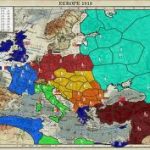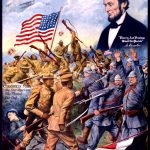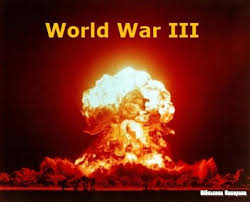World War I Centenary
 Its 100 years today since the World War I broke on 28th June 1914. I strongly believe all wars defies logic. Sociologists and psychologists can tell us many of the reasons for war, but when we see the results of war its tragic effects only tell us that war is unreasonable and illogical. Yet it is still unavoidable. Why? What is it in mankind that causes us to war?
Its 100 years today since the World War I broke on 28th June 1914. I strongly believe all wars defies logic. Sociologists and psychologists can tell us many of the reasons for war, but when we see the results of war its tragic effects only tell us that war is unreasonable and illogical. Yet it is still unavoidable. Why? What is it in mankind that causes us to war?
The 1st World war began on a small note when Austria-Hungary declared war on Serbia. This seemingly small conflict between two countries spread rapidly: soon, Germany, Russia, Great Britain and France were all drawn into the war, largely because they were involved in treaties that obligated them to defend certain other nations. Western and eastern fronts quickly opened along the borders of Germany and Austria-Hungary. The war drew in all the world’s economic great powers which were assembled in two opposing alliances.
 World War I killed more people – more than 9 million soldiers, sailors, and flyers and another 5 million civilians. It involved 28 countries, and cost $ 186 billion in direct costs and another $151 billion in indirect costs. It became a very costly afire. It was the first war to use airplanes, tanks, long range artillery, submarines, and poison gas. It left at least 7 million men permanently disabled. World War I probably had more far-reaching consequences than any other proceeding war. Politically, it resulted in the downfall of four monarchies; Russia in 1917, Austria-Hungary and Germany in 1918, and Turkey in 1922. It contributed to the Bolshevik rise to power in Russia in 1917 and the triumph of fascism in Italy in 1922. It ignited colonial revolts in the Middle East and in Southeast Asia.
World War I killed more people – more than 9 million soldiers, sailors, and flyers and another 5 million civilians. It involved 28 countries, and cost $ 186 billion in direct costs and another $151 billion in indirect costs. It became a very costly afire. It was the first war to use airplanes, tanks, long range artillery, submarines, and poison gas. It left at least 7 million men permanently disabled. World War I probably had more far-reaching consequences than any other proceeding war. Politically, it resulted in the downfall of four monarchies; Russia in 1917, Austria-Hungary and Germany in 1918, and Turkey in 1922. It contributed to the Bolshevik rise to power in Russia in 1917 and the triumph of fascism in Italy in 1922. It ignited colonial revolts in the Middle East and in Southeast Asia.
The war severely disturbed the European economies and allowed the United States to become the world’s leading creditor and industrial power. The war also brought vast social consequences, including the mass murder of Armenians in Turkey and an influenza epidemic that killed over 25 million people worldwide.
industrial power. The war also brought vast social consequences, including the mass murder of Armenians in Turkey and an influenza epidemic that killed over 25 million people worldwide.
Many socio-economic events reveal the utter unpredictability of the future. At the dawn of the 20th century, most Europeans looked forward to a future of peace and prosperity. Europe has not fought a major war for 100 years because their belief in human progress was shattered by World War I, a war few wanted and few unnecessarily got drawn into it. At any point during the five weeks leading up to the outbreak of fighting the conflict might have been averted. World War I was a product of miscalculation, misunderstanding, and miscommunication.
 No one anticipated a war of unimagined magnitude or duration of World War I. At first the armies relied on outdated methods of communication, such as carrier pigeons. The great powers mobilized more than a million horses. But by the time the conflict was over, tanks, submarines, airplane-dropped bombs, machine guns, and poison gas had transformed the nature of modern warfare. In 1918, the Germans fired shells containing both tear gas and lethal chlorine. The tear gas forced the British to remove their gas masks; the chlorine then scarred their faces and killed them.
No one anticipated a war of unimagined magnitude or duration of World War I. At first the armies relied on outdated methods of communication, such as carrier pigeons. The great powers mobilized more than a million horses. But by the time the conflict was over, tanks, submarines, airplane-dropped bombs, machine guns, and poison gas had transformed the nature of modern warfare. In 1918, the Germans fired shells containing both tear gas and lethal chlorine. The tear gas forced the British to remove their gas masks; the chlorine then scarred their faces and killed them.
Conflicts between two nations is ought to take place on various issues; but is war the solution to it? There is little difference between human and animal reaction to war: animals have a strong instinct to fight and defend their territory, humans are no different. What really separates humans from animals is the scale of the fights. The human’s fights are terrifying and blood-spattered. World War I proved that if disputes are to be settled only by war, then human kind will not survive and the whole world will vanish. – Let’s avoid a third world war.
War is not something that any sane person wants to be involved in. World War 2 is a great example: Hitler was trying to take over the world eventually by committing genocide. He needed to be stopped. Genocide means the systematic destruction of all or part of a racial, ethnic, religious or national group by Killing members of the group. You cannot have someone trying to take over the world, especially in such a gory manner.
the world eventually by committing genocide. He needed to be stopped. Genocide means the systematic destruction of all or part of a racial, ethnic, religious or national group by Killing members of the group. You cannot have someone trying to take over the world, especially in such a gory manner.
Unfortunately war is necessary in some cases. In several cases, the only way to stop certain pretense is through war. Think, if certain rulers hadn’t been deposed through war efforts, where would the world be? Unfortunately there are people and governments that will not change through peaceful talks and beneficial agreements.
Wars often start from silly, petty arguments. It’s proved sometimes war is the outcome of national ego.
 Some sociologists feel education is the answer to stop war. They say that if everyone had the best education possible then war, racism and all other social problems would give way to a worldwide peace. But if you look at people who opted for war were most educated, then what happened? Adolf Hitler, Joseph Stalin, Adolf Eichmann, Joseph Goebbels, Idi Amin, Pol Pot, Mao Tse Tung, Sadam Hussein, Slobodan Milosevic and many others were educated people. Does knowledge breed ego in people? Today, knowledge is given priority in all nations but still the number of wars and their severity has not reduced.
Some sociologists feel education is the answer to stop war. They say that if everyone had the best education possible then war, racism and all other social problems would give way to a worldwide peace. But if you look at people who opted for war were most educated, then what happened? Adolf Hitler, Joseph Stalin, Adolf Eichmann, Joseph Goebbels, Idi Amin, Pol Pot, Mao Tse Tung, Sadam Hussein, Slobodan Milosevic and many others were educated people. Does knowledge breed ego in people? Today, knowledge is given priority in all nations but still the number of wars and their severity has not reduced.
Historically, men and nations attempt to secure peace through political alliances. But, even these have not been able to offer lasting peace. In an address to the United States Senate in 1919, President Woodrow Wilson said, “The League of Nations is the only hope of mankind.” World War I was supposed to have been “The war to end all wars“. But it proved wrong. World War II began only 20 years later. Thousands of treaties have been made and disbanded. Our intensions of peace are fanciful, short-lived and fragile; any number of treaties may be formed for peace, but wars are not prevented. It is futile to put all our hope in political alliances. War cannot create peace and peace cannot create war. It is therefore left to us, to the people of this world whether we want war or peace.
 Lastly, some social scientists have envisaged World War III (WWIII, WW3 or the Third World War) to describe a worldwide conflict following World War II. The anticipated dates for the war are from September 1, 2029 – November 11, 2036. The war will break everywhere except Antarctica and most of Africa. The elements for the war would hypothetically be such as Syrian – Turkish border clashes, China’s aggression due to various reasons, same with Russia, economic collapse in word, termination of United Nations, Korea will reunite under democratic government, NATO will occupy the Middle East, dissolution of SCO (Shanghai Cooperation Organization). SCO is a Eurasian political, economic and military organization which was founded in 2001 in Shanghai by the leaders of China, Kazakhstan, Kyrgyzstan, Russia, Tajikistan and Uzbekistan. Post war all SCO governments will reconstruct, Palestine will officially gain independence from Israel.
Lastly, some social scientists have envisaged World War III (WWIII, WW3 or the Third World War) to describe a worldwide conflict following World War II. The anticipated dates for the war are from September 1, 2029 – November 11, 2036. The war will break everywhere except Antarctica and most of Africa. The elements for the war would hypothetically be such as Syrian – Turkish border clashes, China’s aggression due to various reasons, same with Russia, economic collapse in word, termination of United Nations, Korea will reunite under democratic government, NATO will occupy the Middle East, dissolution of SCO (Shanghai Cooperation Organization). SCO is a Eurasian political, economic and military organization which was founded in 2001 in Shanghai by the leaders of China, Kazakhstan, Kyrgyzstan, Russia, Tajikistan and Uzbekistan. Post war all SCO governments will reconstruct, Palestine will officially gain independence from Israel.
The World War III will result into reinstating of United Nations. China and Russia will have democracy. Both countries’ some province will enjoy democracy while some province will merge with neighborhood countries.
 Can World War III be averted? Looking at the world scenario today, possibilities of it cannot be disputed. But, let us hope that the hypothesis of World War III remains an illusion perpetually.
Can World War III be averted? Looking at the world scenario today, possibilities of it cannot be disputed. But, let us hope that the hypothesis of World War III remains an illusion perpetually.












































